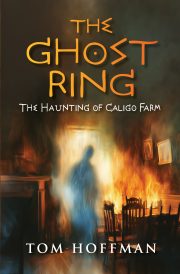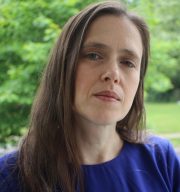Odyssey Online Writing Classes and Webinar
 News from the Odyssey Writers Workshop:
News from the Odyssey Writers Workshop:
Odyssey’s online classes are unique among writing programs. Sessions are held live through Web conferencing software, so students can have an active learning process, asking questions and participating in discussions. Challenging homework assignments help students to incorporate new techniques into their writing process, and in-depth feedback from the instructor and classmates guides students in improving their work. Interactions between classes allow students and the instructor to further explore subject matter. Each student also has a private meeting with the instructor to ask questions and gain additional insight. With class size limited to 14, each student receives personal attention in a supportive yet challenging, energizing learning environment.
Last year, forty-two committed writers from the US, Canada, the UK, New Zealand, Australia, and Japan participated in Odyssey’s three online courses. One student commented, “I’ve taken several writing workshops, some with famous writers, and while I learned something from each one, I never imagined I could get so much out of a workshop until I took Odyssey’s online class…. It’s given me much greater control over my writing and taught me to let the reader experience a scene instead of just hear about it. Jeanne Cavelos is the best close reader I’ve ever seen, and she treats all writing with respect. Take any course she teaches; you’ll work harder than you expected to and make major advances.”
To ensure high quality, Odyssey offers only three online courses per year. Instructors are among the very best in the field and fill each course with hard-won insights and invaluable techniques.
In addition, in response to many requests, Odyssey is offering its first webinar this winter: Productivity for Writers, taught by author Alex Hughes. The webinar format allows you maximum flexibility. You can attend live and interact with the instructor, or you can view the video recording at your convenience. The registration deadline for attendance at the live webinar is January 25. You can register at any time to view the recording. Note that unlike our online courses, which require that you apply, the webinar requires only that you register. Anyone can attend.
Odyssey’s winter 2016 offerings focus on key writing skills:
Three-Act Structure in Fantastic Fiction
Course Meets: January 4 – February 2, 2016
Instructor: Jeanne Cavelos
Application Deadline: December 7, 2015
Level: Advanced
Is plot your enemy? Does your story or novel take too long to “get going”? Does it lack momentum, suspense, and escalation? Do you feel you’re making plot decisions randomly? Are you missing crisis points of impact and emotion? Do readers say “ho hum” or “hunh?” to your climax? Key to strong plotting is understanding the act structure of your story or novel and developing it to its greatest effect. While writing books and blogs periodically discuss acts, few clearly define what truly comprises an act or explain how plotting in acts can create a more suspenseful, unpredictable, and emotionally satisfying experience for the reader. With a strong act structure, your protagonist will face challenges that will put him, and the reader, through an experience they will never forget. When this course was previously offered, students found it extremely helpful. One student commented, “This class has changed the way I write. Before, the words ‘plot and structure’ would make me recoil in anxiety and frustration. Now, I see plot and structure as exciting tools to help me create the kind of stories I want to write.”
Join Jeanne Cavelos, bestselling author and Odyssey director, recently nominated for a World Fantasy Award for her teaching, as she explains how you can strengthen and transform your work through plotting in acts.
Getting the Big Picture: The Key to Revising Your Novel
REVISED AND EXPANDED FOR 2016!
Course Meets: January 5 – February 16, 2016
Instructor: Barbara Ashford
Application Deadline: December 9, 2015
Level: Intermediate
One of our most popular instructors, Barbara Ashford, is offering a revised and expanded version of her most highly rated class.
Finished the first draft of a novel? Still working on it? Struggling with revisions? Getting the big picture can help bring your novel to life.
Writers often approach revisions as an opportunity to polish their manuscripts rather than to take a hard look at the story itself. If your plot meanders and your protagonist’s goals are unclear, polishing your prose won’t help. Award-winning author Barbara Ashford believes the most important skill required to transform a promising novel into a published one is the ability to see the “big picture,” to understand how the building blocks of a novel relate to each other, to identify weaknesses, and to make the necessary changes to strengthen the story.
Barbara will discuss the “big picture” elements at the foundation of every novel: premise, promise, theme, world, character, and plot. The course will explore ways to deepen the connection between these elements and create a more unified and powerful story, the key to lifting a novel out of the slush pile and onto an agent’s desk. A student who previously took the course said this: “I am in the outlining stages of a novel. The Odyssey online class Getting the Big Picture helped me focus in on the true nature of my story, what lies at its heart. The class has given me the tools to improve both plot and characters and tie the two more strongly into the theme. These are the most useful class sessions I have ever attended.”
Barbara is not only expanding the course from our usual three class meetings to four, but she’ll also be adding new content and examples. If you’ve taken the course before and want to take it again to work on a new novel, you’d be welcome to apply.
Point of View: The Intersection of Character and Plot
Course Meets: January 21 – February 18, 2016
Instructor: David B. Coe
Application Deadline: December 26, 2015
Level: Beginner/Intermediate
Of all the many tools writers have at their disposal, perhaps none is more powerful, or more overlooked, than point of view. Often thought of simply as the perspective through which a story is told, it is actually far, far more. It is the mechanism by which we guide our readers through the plot points, narrative arcs, and emotions of our fiction. It is the place where all of our storytelling elements–character, plot, setting, prose–come together. And point of view can also provide solutions to some of the most common problems encountered by aspiring writers and professionals alike. Award-winning author David B. Coe, highly praised mentor and teacher of fiction writing, will show how weaknesses in point of view can undermine an entire story.
We will begin our discussion of point of view by looking at the many factors that go into choosing the correct point of view character or characters for our stories, as well as the proper voice for those characters. We will then move to the study of how point of view influences not only character arc, but also our establishment of plotting, setting, and pacing. We’ll explore the challenges in writing from the point of view of non-human characters and characters from alien cultures. Finally we will conclude the course with an exploration of the ways in which POV can be used to address a host of common problems writers encounter in their work.
WEBINAR: Productivity for Writers
Live Webinar: February 23, 2016
Instructor: Alex Hughes
Registration Deadline: January 25, 2016 (for live webinar)
NOTE: Writers may register for the recorded session at any time
Level: Intermediate
What do you do if you can’t seem to write?
Writers get words on the page. No matter what else is happening in their lives, successful writers continue to produce great work they can be proud of. And yet, if you ask any group of writers what their big challenge is, most will point to getting those words on the page when life gets difficult. And it will get difficult. Fortunately, there are ways to get the words out anyway and continue to reach towards your dreams even in the hardest of circumstances.
In this webinar, author Alex Hughes discusses a variety of strategies to keep the words flowing even when things get tough. She highlights common obstacles such as distractions, depression, anxiety, creative burnout, industry setbacks, family priorities, being overwhelmed by marketing/promotion, job stress, and much more, along with potential solutions. What do you do when you run into a creative wall? Alex gives you the tools you need to dig out. Furthermore, she lays out the methods that she’s used as a working author to meet hard deadlines, including sprints and Pomodoro, creative support, forming good writing habits, and exercises, and provides detailed resources to help you in your journey. She also covers how to decide when to “move the goalpost,” or make hard (and smart) business decisions when the bottom drops out of your life and/or writing becomes very difficult indeed. A practical discussion of some of the hardest parts of the writer’s journey, complete with an open question and answer session at the end. All struggles welcome.


